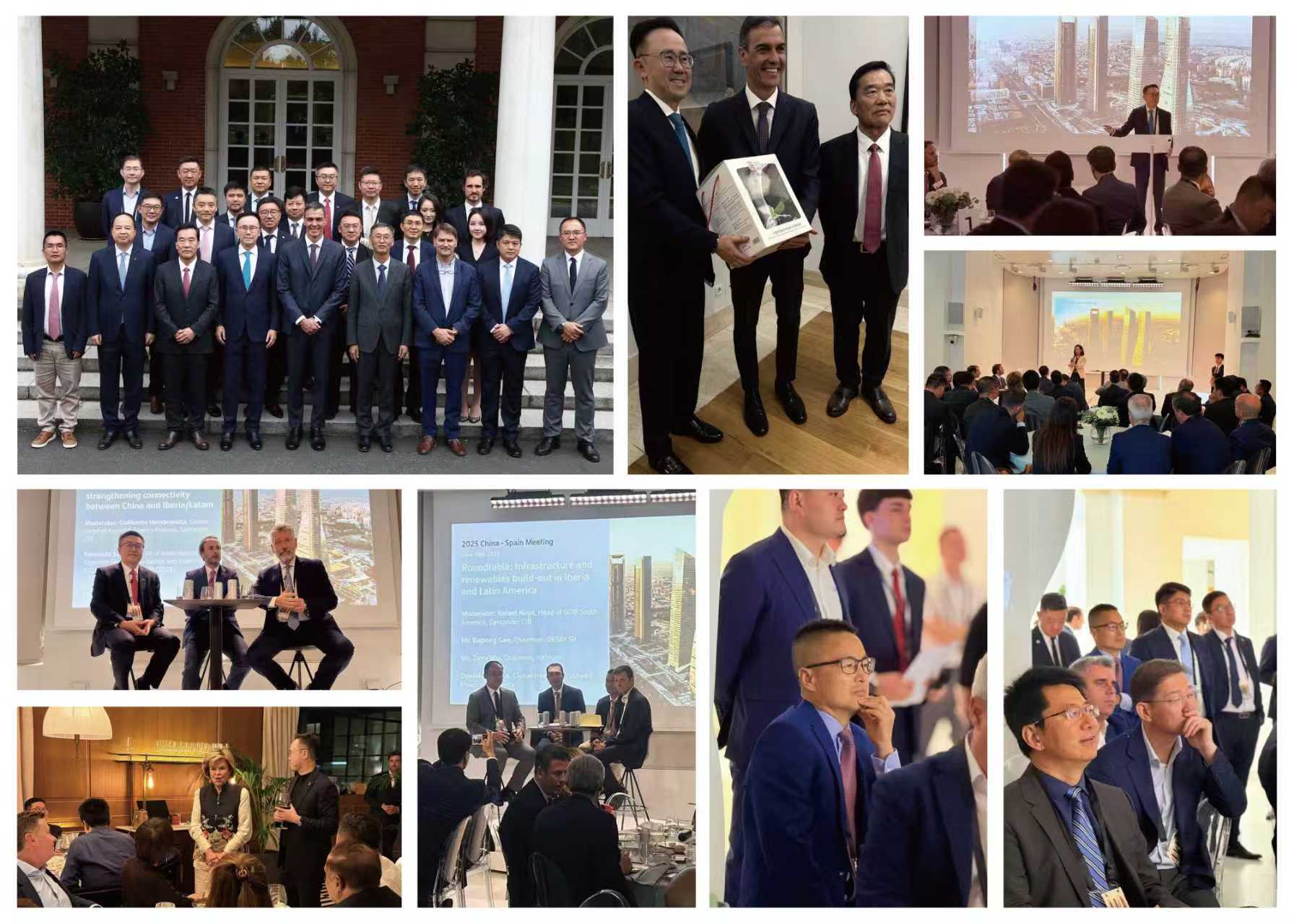Against the backdrop of rising global trade tensions and a shifting geopolitical landscape, M31 Capital convened a high-level Europe Business Summit across three major European cities—Stockholm, Munich, and Madrid—from June 16 to 19. Held in partnership with Business Sweden, the Chamber of Commerce and Industry for Munich and Upper Bavaria, Banco Santander, and other leading international institutions, the four-day summit brought together nearly 300 of the world’s foremost investors, CEOs, and policymakers from China, Europe, and beyond.
Designed and led by M31 Capital, the summit fostered strategic dialogue to identify long-term investment opportunities across critical sectors such as new energy, electric mobility, advanced manufacturing, and artificial intelligence. Attendees engaged deeply with the strategies of top-tier investors and hyper-growth companies, explored frontier technologies, and built high-value connections with global founders and LPs. The Chinese delegation included 30 leading enterprises with a combined market capitalization of approximately USD 450 billion, while over 200 European companies were represented, with an aggregate market value exceeding USD 1.6 trillion. Participating firms spanned critical industries including new energy, electric mobility, advanced manufacturing, and artificial intelligence.
As a global investment firm rooted in deep research and driven by a cognitive edge, M31 Capital is committed to identifying transformational trends and backing visionary founders shaping the future. The Europe Summit—the sixth installment of M31’s Global Dialogue Series—provided a strategic platform not just for conversation, but for activating cross-border deal flow and surfacing differentiated opportunities where trust, technology, and capital converge under systemic shifts.
Featuring a dynamic mix of plenary sessions, closed-door roundtables, fireside chats, thematic breakouts, one-on-one meetings, and private CEO dinners, the summit fostered meaningful engagement throughout. Several of these early-stage conversations have since progressed into substantive investment or strategic partnership opportunities.
In Sweden, Rethinking China–Europe Industry Ties
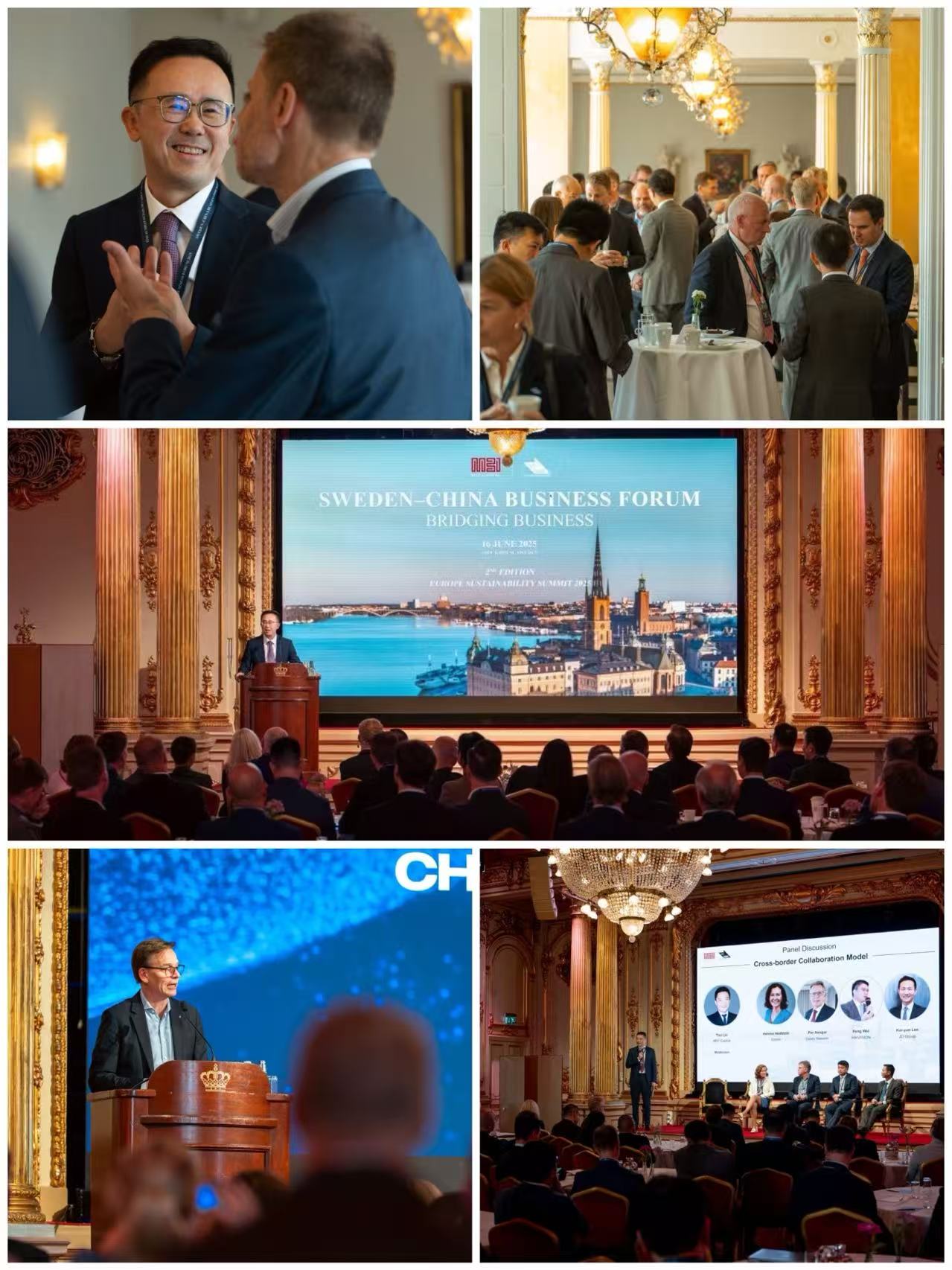
Kicking off the Europe Summit, the Sweden–China Business Forum—co-hosted by M31 Capital and Business Sweden in Stockholm—brought together nearly 100 senior leaders from government and industry across China, Sweden, and the broader Nordic region. The forum served as a platform to close critical information gaps, navigate regulatory complexities, identify credible partners, and explore cross-border investment and financing opportunities.
Executives from Volvo, Scania, Traton, IKEA, Atlas Copco, SEB, Sandvik, Alfa Laval, Epiroc, Nokia, and Geely Sweden engaged in high-level discussions—offering a rare moment of alignment between two of the world’s most sophisticated industrial ecosystems.
Patrick Zhong, Founding Managing Partner of M31 Capital, opened with a clear-eyed assessment of the global landscape: in an increasingly fragmented world, trust and high-quality information have become scarce and highly valuable. “Effective relationships require at least three in-person meetings,” he remarked, underscoring the rising cost of trust between Chinese and European businesses. This forum, he said, aimed to accelerate the foundation of durable, high-integrity partnerships.
Jan Larsson, CEO of Business Sweden, noted that China’s role is evolving from that of a manufacturing base to a source of global innovation. Christian Levin, President and CEO of Scania and Traton Group, echoed that shift with a tangible announcement: Scania will invest €2 billion in a new EV production hub in Jiangsu, integrating Chinese battery recycling expertise into its global operations.
The forum also showcased emerging models of Sino-European industrial collaboration. Wang Xiaoshen, Vice Chairman of Ganfeng Lithium, detailed a low-carbon supply chain strategy that closely aligned with a presentation from Alfa Laval Executive Vice President Thomas Möller on waste heat recovery—highlighting pragmatic technological complementarities. In a roundtable on innovation, Xiaomi Co-founder Hong Feng underscored China’s unique advantage in marrying full-stack manufacturing with digital infrastructure. Epiroc CEO Helena Hedblom added that empowering local teams in China had catalyzed bottom-up innovation with global impact.
On the global expansion front, Geely Sweden CEO Per Ansgar recalled how Geely’s footprint in Sweden grew from 12,000 employees in 2010 to a wide-ranging presence in design, R&D, supply chain and real estate—securing its place in Europe’s automotive ecosystem. JD.com Vice President Kai-yan Lee said the firm delivered over 120,000 smart logistics devices globally last year, with warehouse automation in Sweden alone lifting efficiency by 47%.
Breakout sessions on energy, transportation, and automation turned the forum into a venue for practical engagement.
These exchanges validated several of our core theses: that electrification is accelerating fastest at the intersection of legacy industrials and digitally native platforms; that China’s deep supply chain capabilities are no longer a cost advantage, but a systems advantage; and that Northern Europe—particularly Sweden and Finland—is emerging as a testing ground for green industrial transformation.
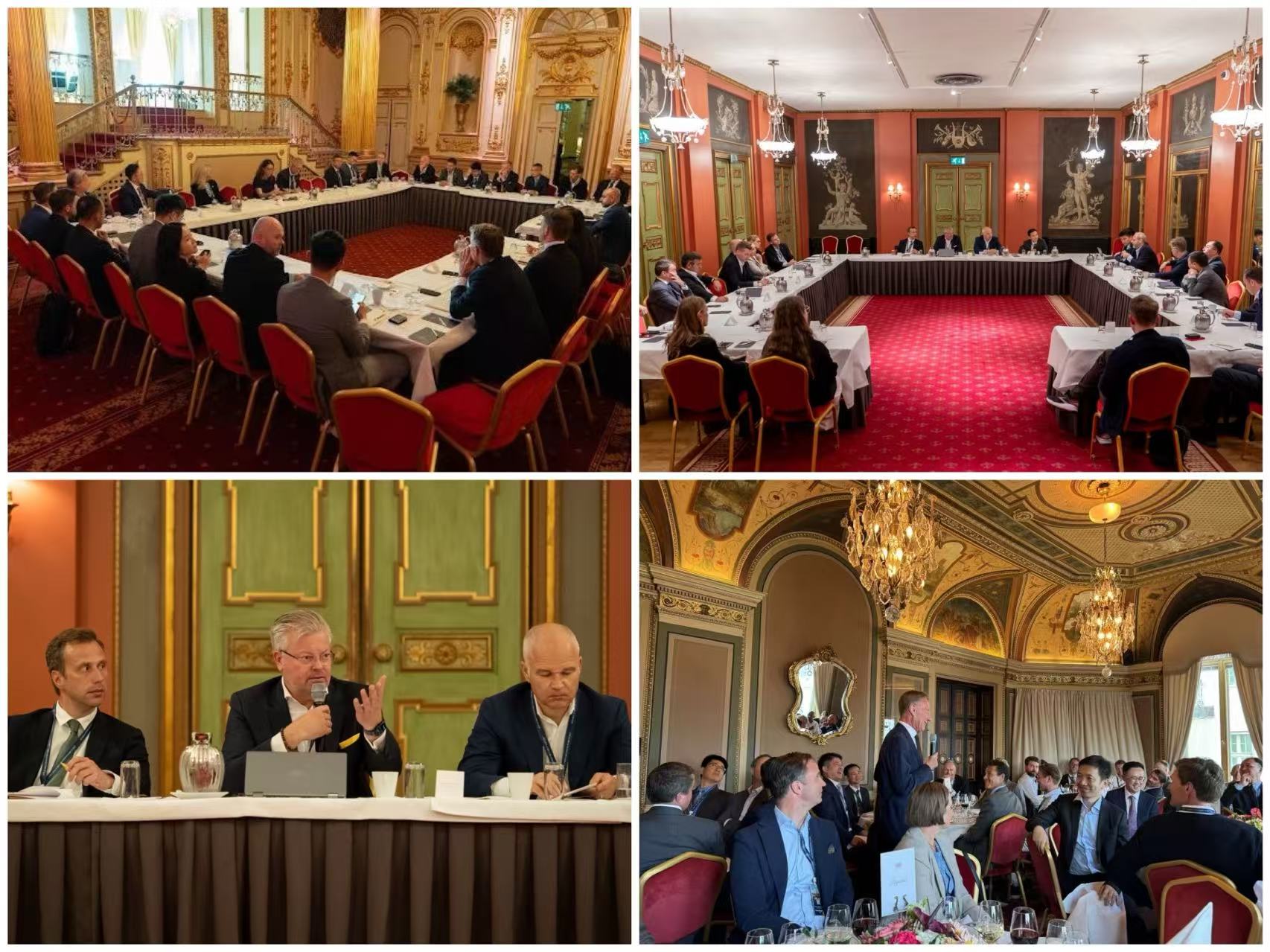
In Germany, New Supply Chain Logics Take Shape
Munich marked the second stop of the Europe Summit, where M31 Capital and the Chamber of Commerce and Industry for Munich and Upper Bavaria co-hosted the China–Europe Business Summit. The gathering drew more than 100 senior executives from companies including Siemens、BMW、Bosch、RWE、Airbus、Miele、Webasto Group、Bank of America、HSBC、Allianz、McKinsey & Company、Antler and World Economic Forum.
But it was the evening before that quietly set the tone. In a private, off-the-record CEO dinner hosted by M31 Capital, executives from FIFA, Viessmann, Bosch Home, Miele, Deutsche Bank, and Droege engaged in candid, cross-cultural exchanges—fostering a level of trust and understanding rarely achieved in formal settings.
Unlike Sweden’s open-ecosystem approach, German firms are embracing a “dual home-field” strategy—bolstering domestic resilience while accelerating global diversification. Executives from Siemens and BMW laid out how they’re building second-growth curves in Asia, the Middle East, and Eastern Europe—not only exporting products, but co-developing standards and services with local partners.
“Five-year plans are obsolete,” said Klaus Josef Lutz, President of the Munich Chamber of Commerce. “Flexibility is the only strategy that works in a world of rolling disruption.” Former Bavarian Finance Minister Georg Fahrenschon added that real partnerships aren’t built on capital, but on trust—and the ability to share risk over time.
Chinese firms echoed that urgency. Executives from Ganfeng Lithium, Xiaomi, Foxconn, and BioMap emphasized that the era of “China as exporter” is fading. What’s emerging instead is a collaborative model of co-investment and joint innovation—especially in AI-driven manufacturing and green tech.
Infrastructure was another major concern. “We’re not just seeing another capex cycle,” said Lin Tian, Partner at M31 Capital. “From AI data centers across the U.S., Europe, China, the Middle East, and Southeast Asia, to renewable grids and smart city buildouts, a fundamentally new infrastructure model is taking shape. The real opportunity doesn’t lie in how much we spend, but in how capital is allocated—and how innovation is applied to build systems fit for the future.”
While macroeconomic themes dominated the broader agenda, the fireside chats delivered quieter, more contemplative clarity. In an unfiltered exchange, Patrick Zhong spoke with Karlheinz Muhr, Chairman International of Global Corporate & Investment Banking at Bank of America Merrill Lynch, and Herbert Henzler, former European Chairman of McKinsey & Company.
Germany offered a real-time view into how “dual-home” operating strategies are reshaping industrial policy and supply chain capital allocation. These insights are informing how we underwrite opportunities in AI-powered automation, energy storage, and edge computing infrastructure across Europe and Asia. Several ongoing conversations from Munich are now progressing toward concrete investment mandates.
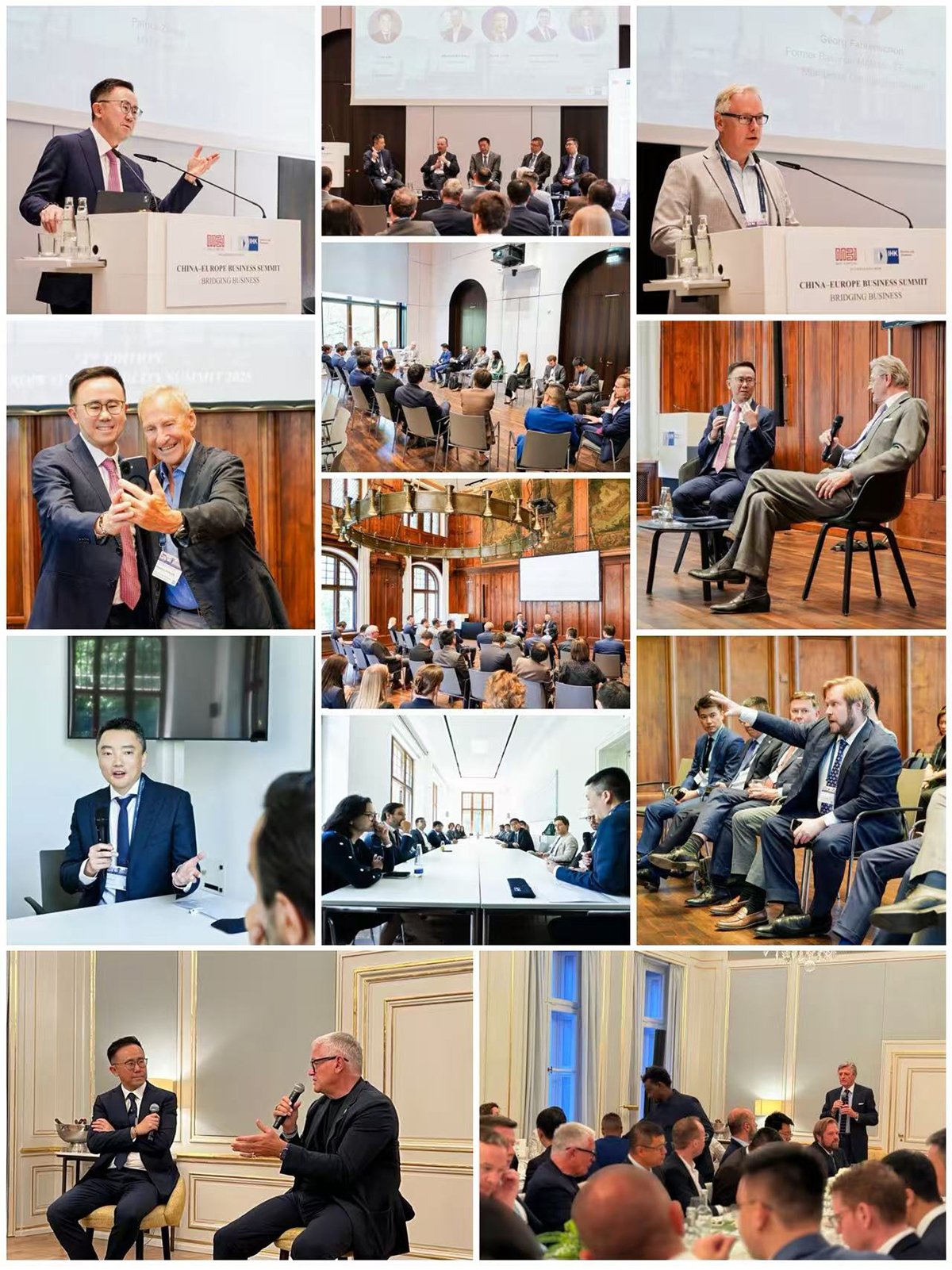
In Spain, Chinese Delegation Welcomed at the Highest Level at La Moncloa
As the final stop of the Europe Summit, Patrick Zhong led a delegation of over 20 Chinese CEOs to Madrid, where they were received at the highest level of the Spanish government at La Moncloa for a candid exchange on economic cooperation and sectoral development.
Beyond the official engagement at La Moncloa, M31 Capital and Santander convened over 30 Spanish business leaders for a CEO breakfast and closed-door roundtable. Among them were senior executives from Repsol, IVECO, Omoda, Grupo Antolín and Sonnedix—representing the country’s industrial and renewable energy backbone.
The conversation centered on infrastructure and green energy, not only in Spain but across Latin America, where Spanish firms have a longstanding footprint and Chinese companies see rising opportunity.
Brian Gu, Vice Chairman and President of XPeng Motors, noted that success in Europe requires localization rather than replication, citing close collaboration with local engineers to tailor design, driving experience, and language features. Jeff Wu, Chairman of HiTHIUM, called Spain a strategic gateway to Europe, Africa, and Latin America, highlighting strong policy incentives for renewables but also pointing to labor costs as a driver for automation and local talent development.
Spain, with its strategic ties to Latin America, surfaced an underappreciated axis of opportunity. As supply chains reconfigure, we see growing alignment between Southern Europe’s infrastructure developers and Chinese green tech players. The summit opened new avenues for co-investment—particularly in distributed energy, logistics automation, and digital infrastructure across the LatAm corridor.
Ana Botín, Executive Chair of Banco Santander, captured the long-term vision with a metaphor: the olive tree—rooted, resilient, and renewable—reflecting the kind of partnerships both sides hope to cultivate.
“This isn’t just about transactions,” Patrick Zhong said in closing. “It’s about shared risk, mutual recognition, and the time it takes to build trust. Durable investments start with clear-eyed truths—not models or headlines, but how systems actually work. In a fragmented world, the real edge lies where capital, technology, and trust converge. The Europe Summit was not an event—it was part of how we learn, align, and act early.”
